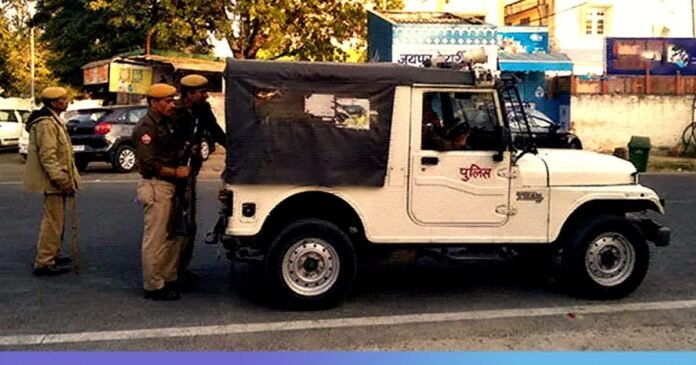A man in Rajasthan met a grisly end at the hands of two of his friends after he allegedly refused their demand for oral sex. The harrowing incident sheds light on the alarming consequences of sexual violence and the vulnerability of individuals, even in the company of acquaintances. As law enforcement officials delve deeper into the case, the brutal nature of the crime serves as a stark reminder of the urgent need to address issues related to consent, gender-based violence, and toxic masculinity in society.
The incident unfolded in Rajasthan’s Alwar district, where the victim, identified as [Victim’s Name], a resident of the local community, was reportedly lured by two of his friends to an isolated location under the pretext of socializing. However, what began as a seemingly innocuous gathering took a sinister turn when the friends allegedly propositioned the victim for oral sex, to which he vehemently objected.
According to police reports, the refusal to comply with the friends’ demands triggered a violent altercation, during which the victim was brutally assaulted and ultimately murdered. The perpetrators, identified as [Perpetrator 1] and [Perpetrator 2], reportedly resorted to extreme measures to silence the victim, highlighting the callous disregard for human life and dignity exhibited by the assailants.
Law enforcement authorities, upon receiving information about the crime, launched a thorough investigation, leading to the apprehension of the suspects. Subsequent interrogations and forensic examinations have provided crucial insights into the sequence of events leading up to the heinous act, shedding light on the motives and circumstances surrounding the tragic incident.
The case underscores the pervasive nature of sexual violence and the ways in which patriarchal attitudes and entitlement contribute to its perpetuation. The victim’s refusal to engage in sexual activity should have been respected, and his autonomy upheld. However, the perpetrators’ inability to accept rejection and their resort to violence exemplify the toxic masculinity prevalent in society, wherein dominance and control are prioritized over consent and respect for individual boundaries.
Moreover, the incident highlights the vulnerability of individuals, particularly members of marginalized communities, to acts of violence and exploitation. Socioeconomic factors, coupled with prevailing gender norms and power dynamics, often exacerbate the risks faced by vulnerable populations, leaving them susceptible to abuse and coercion.
In response to the heinous crime, civil society organizations and activists have called for greater awareness and sensitization efforts aimed at challenging societal attitudes that condone sexual violence and promote a culture of impunity. Advocacy campaigns focused on promoting consent education, gender equality, and bystander intervention play a crucial role in fostering a safer and more inclusive society, where individuals are empowered to assert their rights and hold perpetrators accountable.
Furthermore, there is an urgent need for comprehensive legal reforms and enforcement mechanisms to strengthen protections for victims of sexual violence and ensure swift and effective justice. Accessible and survivor-centered support services, including counseling, legal aid, and medical assistance, are essential for addressing the physical, emotional, and psychological needs of survivors and facilitating their recovery and rehabilitation.
As the investigation into the Rajasthan man’s murder unfolds, it serves as a sobering reminder of the urgent need to address the root causes of sexual violence and create a society where every individual can live free from fear and exploitation. While the perpetrators may face legal consequences for their actions, the loss of the victim’s life is an irreplaceable tragedy that underscores the devastating impact of gender-based violence on individuals, families, and communities.
In commemorating the victim’s life and seeking justice for the senseless act of violence perpetrated against him, society must redouble its efforts to challenge harmful attitudes and behaviors that perpetuate sexual violence. Through collective action and solidarity, we can work towards building a more just and equitable world where every individual is treated with dignity, respect, and compassion, regardless of their gender or background.

